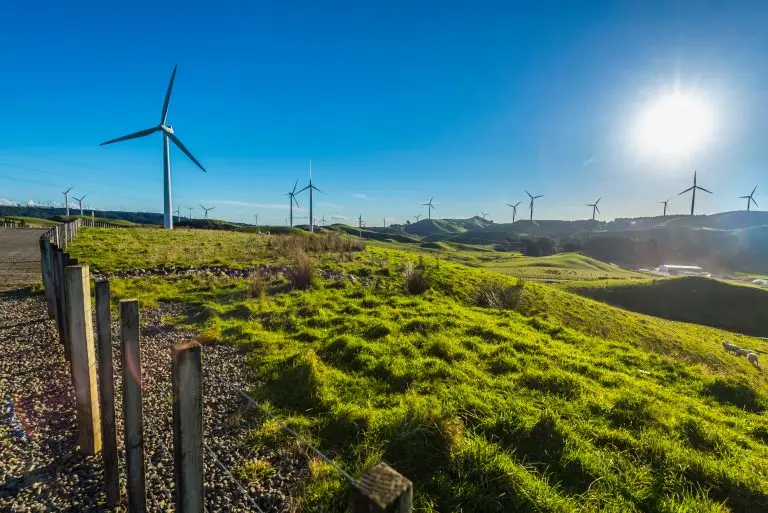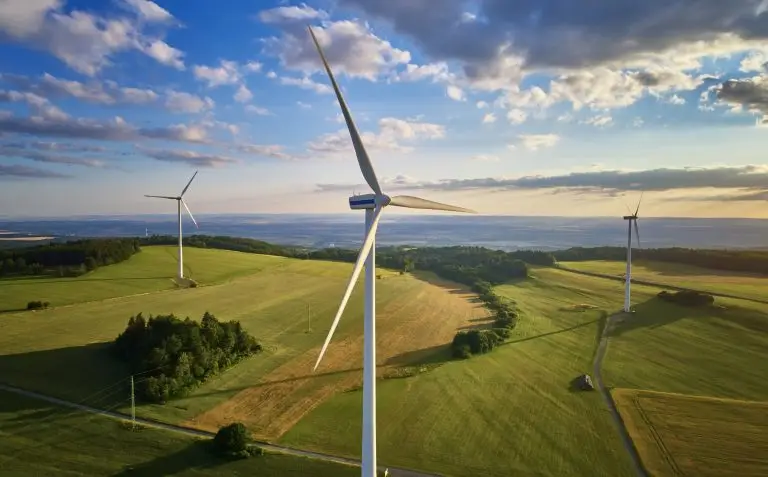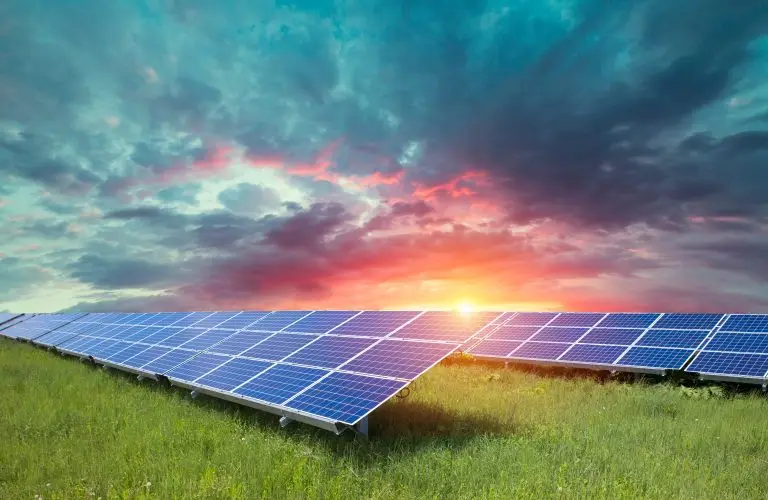On 17 July 2023, the Ministry of Energy published a Draft law on the necessary measures for the exploitation of offshore wind energy and amending and supplementing certain laws in the energy field (the “Draft Law“).
The Government introduced the Draft Law in the context of the impending consequences of climate change, the urgent need for an energy transition, while also considering the high demand for Member States to ensure their energy security given the hostile geopolitical context in the region. As the Black Sea has become increasingly appealing to investors for its wind potential, the Draft Law establishes the legal framework for the development of offshore wind projects in the Romanian area of the Black Sea.
In the past few years, other legislative proposals on the exploitation of offshore wind have been put forward; however, none of them has completed the legislative procedure in the Parliament. The Draft Law however, introduces an important new element by introducing a support scheme based on contracts for difference (“CfD Scheme“) (in Romanian: contracte pentru diferență) for the construction and operation of offshore wind power plants with a capacity of 3 GW until 2035. Although Romania does not have an approved framework for the CfD Scheme, several attempts have been made in the past few years to introduce it, and the support scheme is also mentioned in the Recovery and Resilience Plan for Romania. As the Draft Law is strictly connected to the CfD Scheme, the latter must be put in place before the enactment of the Draft Law.
The most significant aspects covered by this Draft Law are as follows:
- appointing the competent authorities responsible for facilitating and coordinating the implementation of offshore wind energy projects;
- determining the regulations and conditions governing setting up and concessioning the perimeters with potential for offshore wind exploration and exploitation;
- determining the regulations and conditions for granting the required authorizations and licenses;
- regulating legal easements and access rights;
- regulating the tax and royalty regimes;
- connection of projects to the onshore electricity transmission network;
- obligations relating to the decommissioning of offshore wind power plants;
- contraventions and penalties;
A. Competent authorities
The main regulatory authorities involved in the implementation of offshore wind projects will be the Ministry of Energy, the Competent Authority for Offshore Operations in the Black Sea (“ACROPO“) and the National Energy Regulatory Authority (“ANRE“).
- Ministry of Energy acts as the competent authority for the concession of offshore perimeters, organizing tenders for granting concessions for the exploration and operation and construction phases of wind power plants. The concession agreements will be concluded with the Ministry of Energy, as grantor in the concession agreements.
- ACROPO will grant the permits for the building and decommissioning of offshore wind power plants, by derogation from Construction Law no. 50/1991.
- ANRE remains the authority that issues the electricity production license, once ACROPO has concluded the reception of the project.
The Draft Law establishes an express prohibition to carry out any construction or exploitation works without obtaining a permit from ACROPO, as well as to execute any exploration, exploitation and building works outside the offshore perimeters established by the Ministry of Energy or in the absence of a concession agreement.
Another important role will be played by the Maritime Spatial Planning Committee in the implementation of maritime plans. We note that, at the moment, the Maritime Spatial Planning for Romania is yet to be submitted to the European Commission.
B. The concession process – terms and conditions
Firstly, a concessionaire can be either a Romanian or a foreign legal entity. The Ministry of Energy will approve by 1 January 2027 the procedures for granting the concession and the exploration permit, both by direct award and by tender, and will provide the qualification criteria for the concessionaire. In case the applicant is a foreign legal entity, the law requires the foreign entity to establish and maintain a branch on the territory of Romania throughout the operation of the offshore wind power plant (the same condition is to be met if the grantor enters into agreements with non-resident subcontractors).
The Draft Law differentiates between two phases, each of them involving both the organization of a tender and the conclusion of a concession agreement:
- The exploration phase – involves the conclusion of an exploration concession agreement with an economic operator, following the organization of a public procurement procedure for each perimeter to be included in the list of perimeters that can be concessioned for exploration and/or exploitation. This list will be approved by ministerial order. Following the execution of this agreement, the Ministry of Energy will also issue an exploration permit, which will be valid for a maximum of two years and may be extended for a maximum of one year. This extension will also come with a renewal of the financial guarantee for high-quality work. If the Romanian State decides not to move forward with the exploitation phase for the perimeter where exploration activity has already been executed, the Ministry of Energy will compensate the aggrieved party.
- The exploitation phase – involves the conclusion of the concession agreement for the building and commissioning of offshore wind power plants and the agreement for the CfD Scheme. An important aspect is the pre-emption right of the economic operator who carried out the exploration activity in the perimeter for which the exploitation tender is being carried out. To benefit from this pre-emption right, the economic operator will have, firstly, to meet the qualification conditions that will be provided in the concession announcement, and also, to benefit from the CfD Scheme it will have to meet the conditions set out specifically for the support scheme in the upcoming legislation. The concession agreement for this stage is concluded for 30 years, with the right of extension for successive periods of 10 years each, and if the grantor wishes to continue exploitation, for an exceptional period of 30 years. The concessionaire will be required to pay an annual royalty for the concessioned perimeter and a fee for the exploitation activity for the surface of the concessioned perimeter and the surface occupied by the electric cables. However, if the commissioning of the offshore wind power plant does not take place within 7 years from the date the concession agreement was concluded, the agreement will be terminated by default.
C. Permits and authorizations
Following the conclusion of the concession agreement for the exploitation phase, the economic operator will have to immediately start the legal formalities in order to obtain the required permits.
- Firstly, ANRE will grant the setting-up authorization according to the provisions of Energy Law no. 123/2012.
- Subsequently, ACROPO will issue the development approval, which will be equivalent to a building permit, both for offshore and onshore constructions, within 60 days from the date of submission of the complete documentation by the concessionaire. Underground works related to the execution of construction operations and those of a temporary nature up to the interconnection point with the electricity transmission network will also be subject to prior authorization by ACROPO.
- The Draft Law also stipulates provisions regarding the protection of archaeological sites and the discharge of archaeological duties.
D. Legal easement and access rights
- The Draft Law establishes an underground, surface or over-ground right of way in favor of the concessionaire which will be in force throughout the entire duration of the offshore wind operations. This right will be approved by ACROPO and can be exercised without the need to obtain the landowners’ or other real rights owners’ prior approval and without being subject to registration in the land register. The titleholders of the concession agreement will need to notify the landowners and other real rights owners with regard to the exercise of the right of way, with at least 30 days in advance. The notification will be accompanied by the payment of a compensation and indemnification for the damages caused.
- In the case of private individuals, the Draft Law addresses both a right of use of the land where offshore wind operations will be carried out, and means to acquire this right, as well as, a right of use and easement, for the affected real estates, the right of use being subject to compensation and indemnification.
E. Decommissioning
- Both the concession agreement and the development approval granted by ACROPO will include obligations regarding the decommissioning of the power plant. The developer will have to restore the perimeter to its previous state, including restoration and clean-up of the area in accordance with conditions set by the environmental authority through the environmental permitting procedure.
F. Contraventions and penalties
- The Draft Law also includes a section with contraventions and penalties for failure to comply with the provisions set out thereof. The highest fine is RON 10,000,000, for commencing, carrying out or decommissioning works without first obtaining the required approvals.
Important deadlines
- Within six months from the date of entry into force of this Draft Law, ACROPO will develop and submit for Government approval the organizational model and its specific responsibilities, together with the amendment of the current regulation, in order to accommodate its new role as provided under the Draft Law. The same time limit and obligation are incumbent upon the Ministry of Energy.
- 24 months after amending its own organization model, the Ministry of Energy will commence a study that will serve as the foundation for establishing all the offshore perimeters that will be considered for the tender procedure.
- The Ministry of Energy will elaborate and adopt through a government decision, until 1 January 2027, the procedures regarding the granting of concession and the exploration permit, by direct award and public tender.
The Draft Law will remain in public consultation with the Ministry of Energy until 17 August 2023, after which it will be registered with the Parliament to undergo the legislative procedure. We note that since this is the first draft introduced by the Government, many provisions may still be amended and supplemented. We will continue to follow the legislative procedure and provide updates when necessary.




